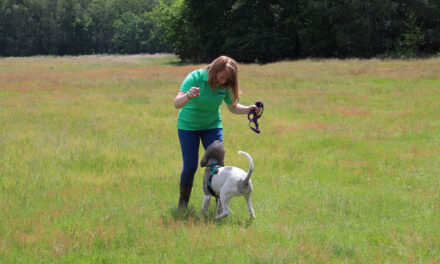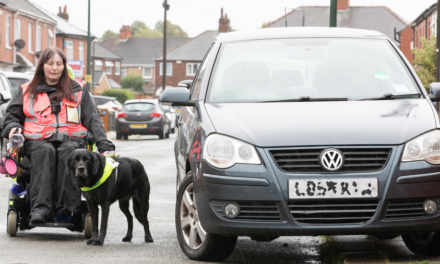A workshop by US-based dog trainer Ivan Balabanov, known for his use of shock collars and other aversive training methods, has sparked concern from the RSPCA ahead of its scheduled dates in Birmingham next January.
The workshop, running from 17 to 19 January 2025, has already sold out, but the exact venue remains undisclosed.
The RSPCA has written to Balabanov, expressing concerns about his training methods and the potential harm they could cause to dogs. As of yet, they have received no response. While the use of shock collars remains legal in England, they are banned in neighbouring Wales, where using such devices on dogs and cats is prohibited.
RSPCA Expresses Concern Over Aversive Training Methods
Dr Samantha Gaines, a dog welfare expert at the RSPCA, voiced strong concerns about the use of shock collars. “Shock collars are unnecessary and cruel,” she stated. “It concerns us that there are workshops taking place in the UK which promote training techniques that can cause pain and distress and may actually worsen behavioural problems.”
The RSPCA has raised specific concerns about the use of shock and prong collars, devices which are often used to deliver electric shocks to dogs as a form of punishment for unwanted behaviours. Research has indicated that these training methods can cause physical pain, fear, and even aggression in dogs, leading to further behavioural issues rather than resolving them.
Shock collars work by delivering an electric shock to the dog’s neck when they exhibit undesired behaviour. For the shock to be effective, it must be strong enough to cause discomfort and fear, ensuring the dog associates the punishment with the unwanted action. However, this association can lead to unintended consequences, such as dogs becoming fearful or aggressive toward people or other animals in their environment.
Call for Positive Reinforcement Training
Dr Gaines highlighted the importance of using positive, reward-based training methods that have proven to be more effective in the long term without causing harm to the animal. “We promote and recommend reward-based training techniques that dogs like or enjoy,” she explained. “There is a wealth of evidence from around the world which supports the effectiveness of positive training methods.”
Reward-based training is widely embraced by pet trainers, the military, and assistance dog organisations, all of which require high standards of obedience and behaviour from their dogs. Such methods are considered more humane and lead to better outcomes without compromising the welfare of the animal.
Proposed UK Ban on Shock Collars Faces Delays
Earlier this year, the UK Government announced plans to ban the use of shock collars on dogs and cats in England, with the law initially expected to come into effect in February 2024. However, due to time constraints in Parliament before July’s General Election, the legislation has not yet been implemented.
Despite this delay, the RSPCA continues to advocate for the ban, noting that the use of shock collars is already illegal in Wales. The animal welfare charity is calling on the public to avoid using these devices and instead opt for kinder, scientifically supported methods of training.
RSPCA Seeks Public Support Regarding Workshop Venue
With the venue for Ivan Balabanov’s Birmingham workshop yet to be announced, the RSPCA is asking the public to help provide information. The organisation is eager to open a dialogue with Balabanov to address their concerns over his training methods and engage with the venues hosting the event.
“We are keen to discuss our concerns with Mr Balabanov and the venues hosting this trainer, though these are yet to be advertised,” Dr Gaines stated. The RSPCA is encouraging anyone with information about the event’s location to reach out via their social media channels.








